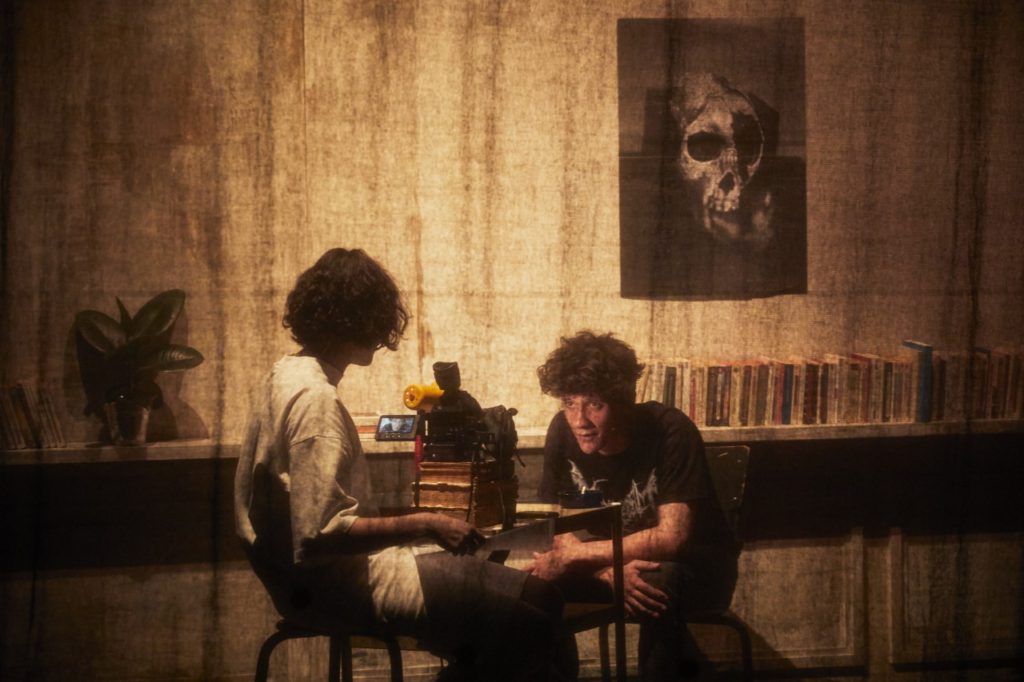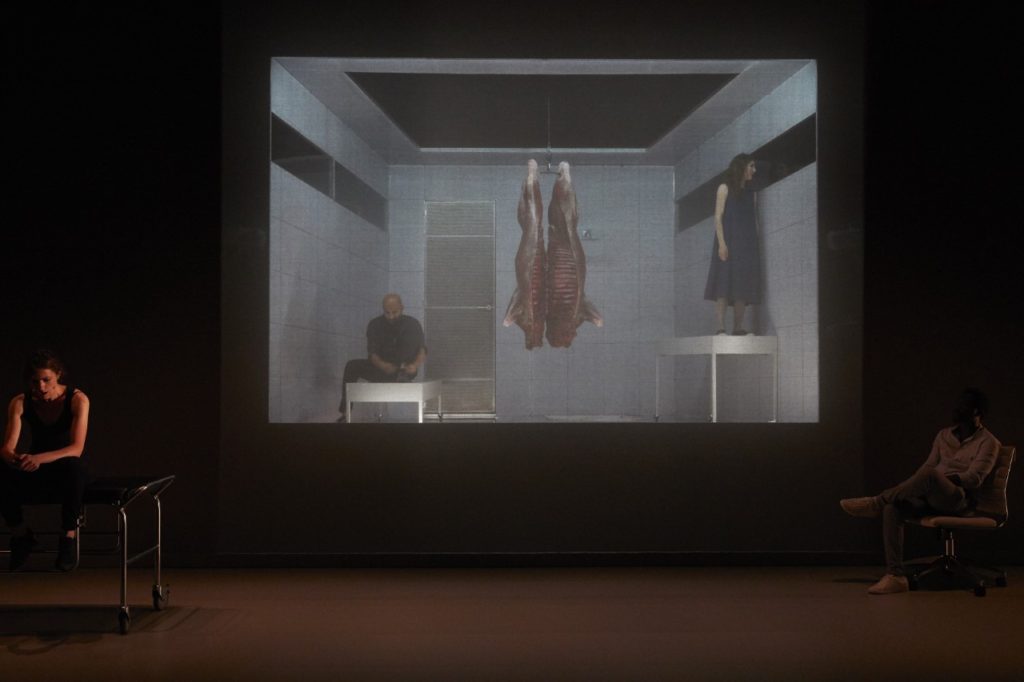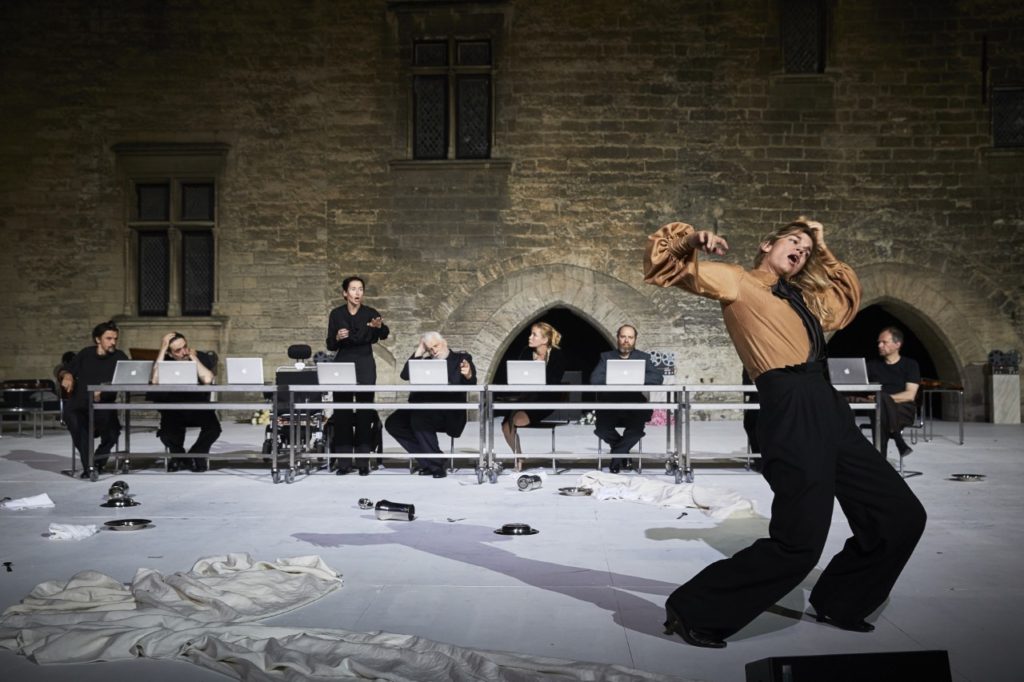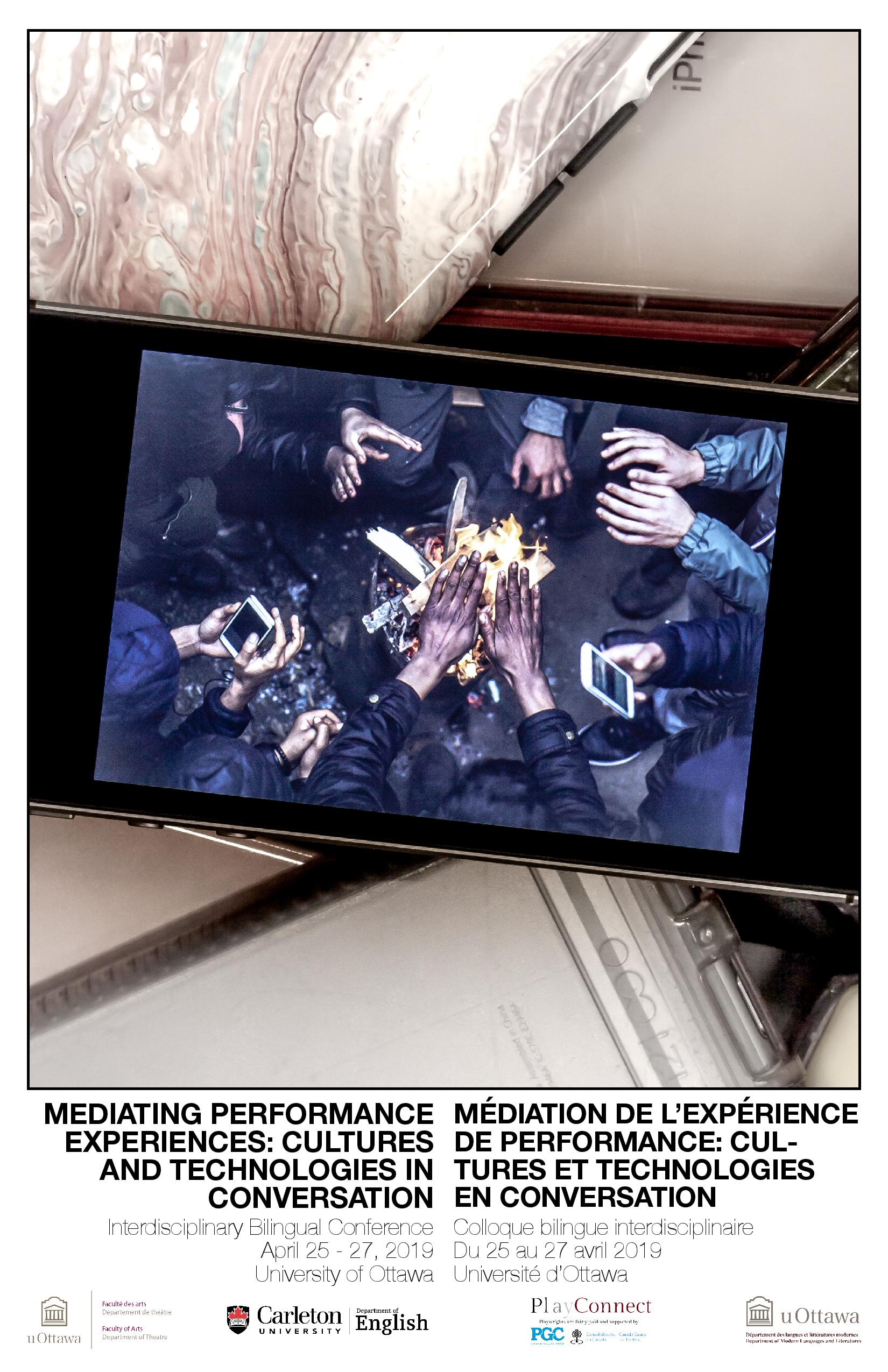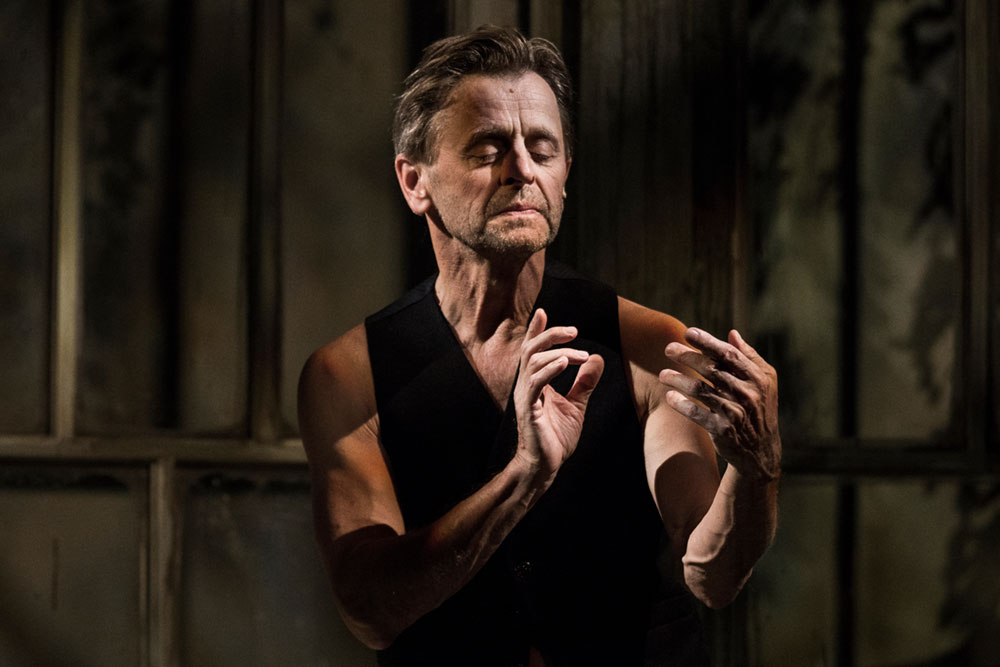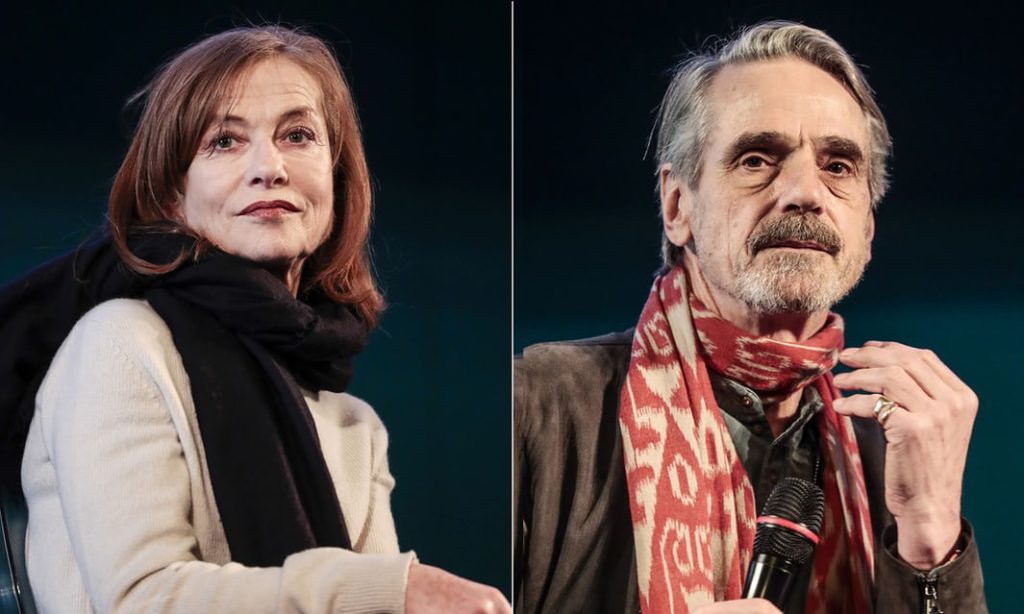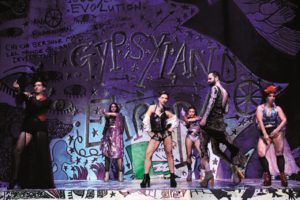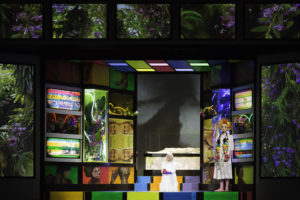Avignon 2019: Staging the impossible. On exile, community and hope in Christiane Jatahy’s Le Présent qui déborde – Notre Odyssée II
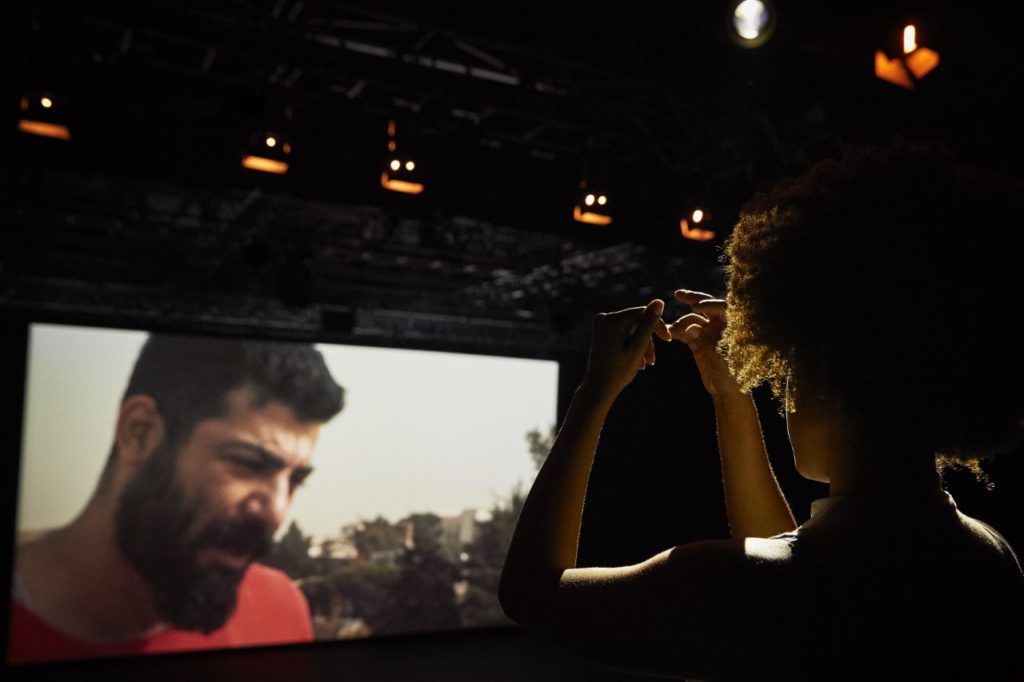
Photo, Christophe Raynaud De Lage: Le Présent qui déborde. Notre Odyssée II, O Agora que Demora
Exile, migration, refugee crisis, loss of home and family, and death are among many realities and concerns that the discussion of history, memory and collective identity today in Europe and elsewhere demands. Avignon 2019 pays special attention to these urgent topics with more than a few productions telling stories of displacement.
Le Présent qui déborde – Notre Odyssée II, O Agora que Demora is an epic tale of today’s exile based on Homer. It was written, produced, filmed and staged by Christiane Jatahy, a theatre maker from Brazil, currently an exile herself, who lives now in Belgium. An exploration of the Le notion “borders”, as a geographical, political, cultural and artistic phenomena, Le Présent qui déborde is a second part of Jatahy’s diptych, Our Odyssey, with tis first part Ithaca premiered on 16 March 2018 at the Ateliers Berthier de l’Odéon-Théâtre de l’Europe, in Paris. …
